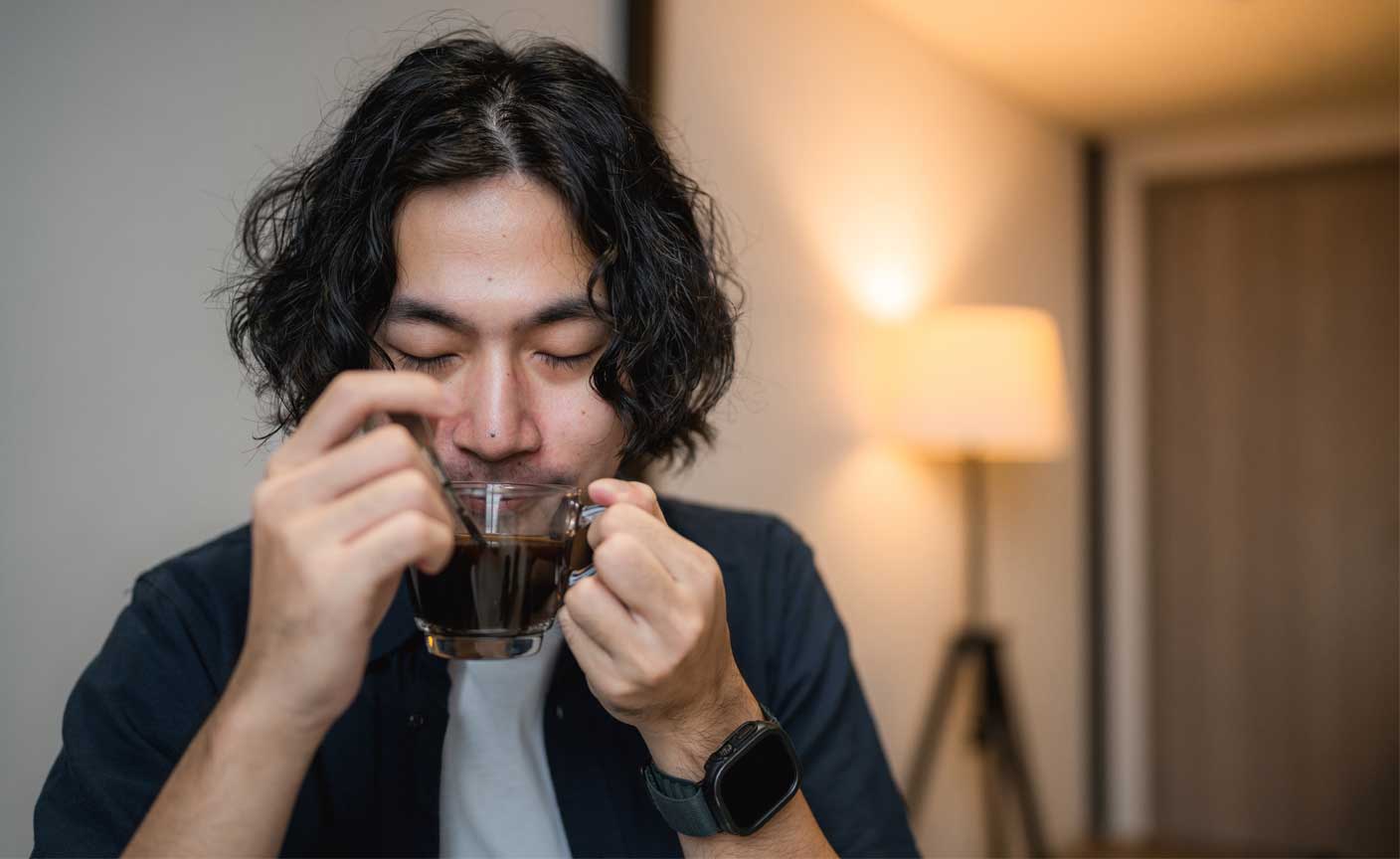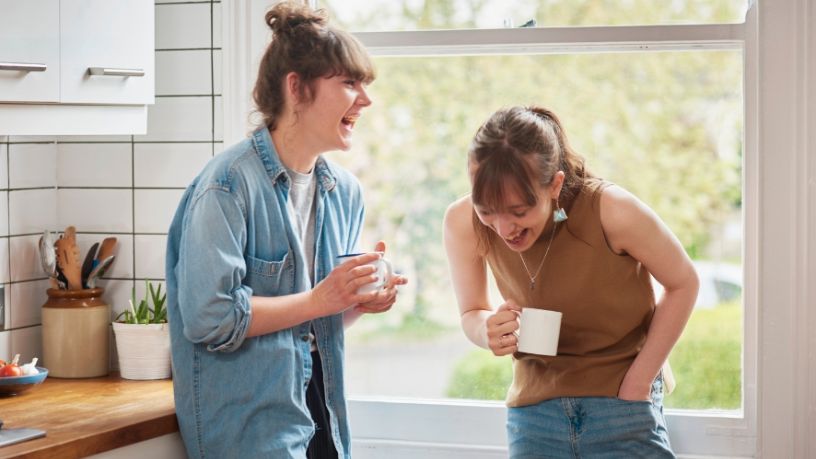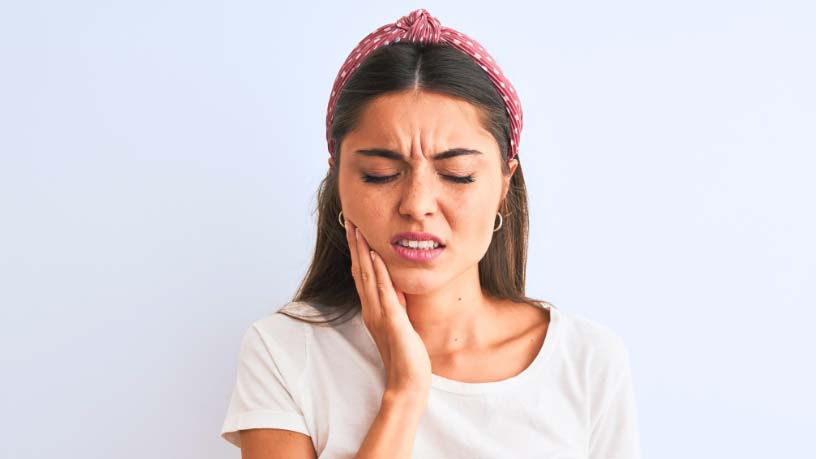Are you at risk of sleep apnoea? Learn the basics of this night-time disorder.
On this page
Key takeaways
There are a range of signs and symptoms for sleep apnoea, some of which you might be experiencing.
Find out your risk factors plus the treatment options available.
Affecting around 5% of Australians, sleep apnoea is a lot more than just a snoring problem, with serious social and health impacts.1
But what, exactly, is sleep apnoea? And how at risk are you?
What is sleep apnoea?
Also known as obstructive sleep apnoea, the condition occurs when the muscles in the upper airways over-relax during sleep. This causes the throat to narrow, making it harder for air to get through. This can cause you to intermittently stop breathing, usually for at least 10 seconds at a time more than 5 times every hour.
As air forces its way through the throat, tissues in this area often vibrate, making snoring a common symptom of sleep apnoea. And, with less air reaching your lungs, your blood oxygen level might drop.2
Signs and symptoms of sleep apnoea
As well as loud, frequent snoring, several common signs and symptoms might indicate that you have sleep apnoea. These include:
- interrupted breathing during sleep
- gasping for air during sleep
- daytime sleepiness and fatigue from poor quality sleep
- poor cognitive function
- dry mouth
- headaches
- sexual dysfunction
- regularly waking up in the night to urinate.3
While sleep apnoea is less common in children, if affected they may also experience:
- bedwetting
- worsening asthma
- trouble focusing.
What causes sleep apnoea?
Common factors that contribute to sleep apnoea include:
- excess weight and obesity
- age (you become more prone as you age due to weaker muscles)
- alcohol consumption
- consistent nasal congestion
- larger-than-normal tonsils and adenoids
- some medications (like sleeping pills)
- the shape and size of your face.1
Health conditions like high blood pressure, type 2 diabetes, chronic lung diseases and heart disorders can also put you at an increased risk for sleep apnoea. Smokers are 3 times more likely to suffer from the condition.4
Sleep apnoea is more common in men, with one in 4 men over the age of 30 living with some degree of the condition.1 Women in the post-menopause stage of their lives are 2 to 3 times more likely to experience sleep apnoea than premenopausal women.5
How serious is sleep apnoea?
While it can be serious, sleep apnoea usually doesn’t cause a person to permanently stop breathing in their sleep. When breathing is interrupted, your body’s reflexes normally wake you up, typically for a few drowsy seconds that you won’t remember.
That said, there’s a range of short and long-term effects caused by sleep apnoea that can lead to serious health issues. Sleep apnoea may increase your risk of certain conditions, including:
- heart attack
- stroke
- high blood pressure.1
Sleep apnoea can also cause problems in relationships. Excessive loud snoring can interrupt a partner’s sleep (or those sleeping in other rooms), potentially leading to distress and anxiety.6
Pregnant people who live with sleep apnoea may also be at a higher risk of adverse pregnancy outcomes due to hormonal fluctuations.7
Do I have sleep apnoea?
Unfortunately, sleep apnoea often goes undiagnosed.8
If you share a bed, ask the person you sleep next to if you snore, and if they’ve noticed interruptions in your breathing or snoring throughout the night. If you sleep alone, you can try a sleep-tracking app.
Snoring doesn’t always indicate sleep apnoea. Likewise, it’s completely normal for breathing to be briefly interrupted during sleep. The point at which it becomes a problem really comes down to the frequency of these interruptions.1
How is sleep apnoea treated?
If you’re diagnosed with sleep apnoea, there are a range of treatments available. These include everything from lifestyle changes, like quitting smoking or weight management, to surgery in extreme cases.
If you’re concerned about sleep apnoea, talk to your GP.


At Bupa, trust is everything
Our health and wellbeing information is regularly reviewed and maintained by a team of healthcare experts, to ensure its relevancy and accuracy. Everyone's health journey is unique and health outcomes vary from person to person.
This content is not a replacement for personalised and specific medical, healthcare, or other professional advice. If you have concerns about your health, see your doctor or other health professional.
1Better Health Channel. (2021). Sleep apnoea. Victoria State Government, Department of Health.
2Cleveland Clinic. (2022). Hypoxemia. Cleveland Clinic.
3US National Heart, Lung, and Blood Institute. (2022). Sleep Apnea: Symptoms. US National Heart, Lung, and Blood Institute.
4Mayo Clinic. (2023). Sleep apnea. Mayo Clinic.
5Johns Hopkins Medicine. (2024). How does menopause affect my sleep?. Johns Hopkins Medicine.
6Cascais Costa, C., Afreixo, V., & Cravo, J. (2023). Impact of obstructive sleep apnea treatment on marital relationships: sleeping together again?. Cureus, 15(10), e46513.
7Jehan, S., Auguste, E., Zizi, F., Pandi-Perumal, S. R., Gupta, R., Attarian, H., Jean-Louis, G., & McFarlane, S. I. (2016). Obstructive sleep apnea: women's perspective. Journal of sleep medicine and disorders, 3(6), 1,064.
8Finkel, K.J,. Searleman, A.C., Tymkew, H., et al. (2009, August). Prevalence of undiagnosed obstructive sleep apnea among adult surgical patients in an academic medical center. Sleep Med, 10(7):753-8.
You might also like...
How diet affects your sleep
What you eat and drink during the day can have a big impact on how well you sleep at night. So how exactly does your diet affect your sleep?
Breaking the stress-sleep cycle
A good night’s sleep is one of the best ways to manage stress, but ironically, it’s incredibly difficult to drift off when you’re stressed.
6 tips to help you quit smoking
Thinking about quitting smoking, or looking for help to kick the habit? We share 6 strategies to help you quit with Dr Chelsie McMullin.
Bruxism: The teeth disorder you might be sleeping on
If you’re having trouble sleeping, your teeth might be to blame. Find out how bruxism may be affecting you.





